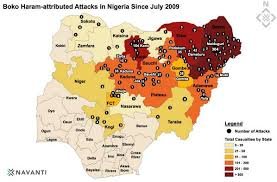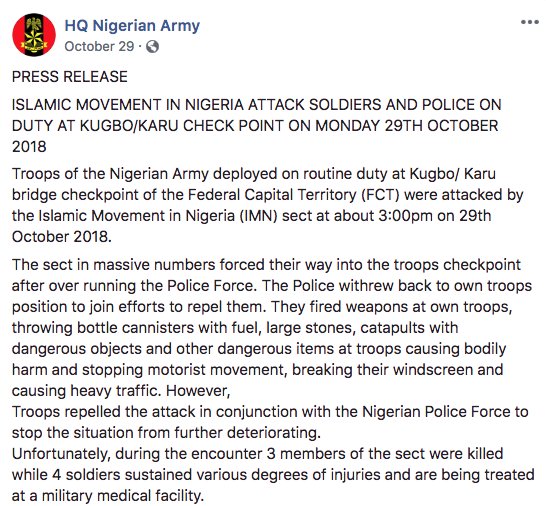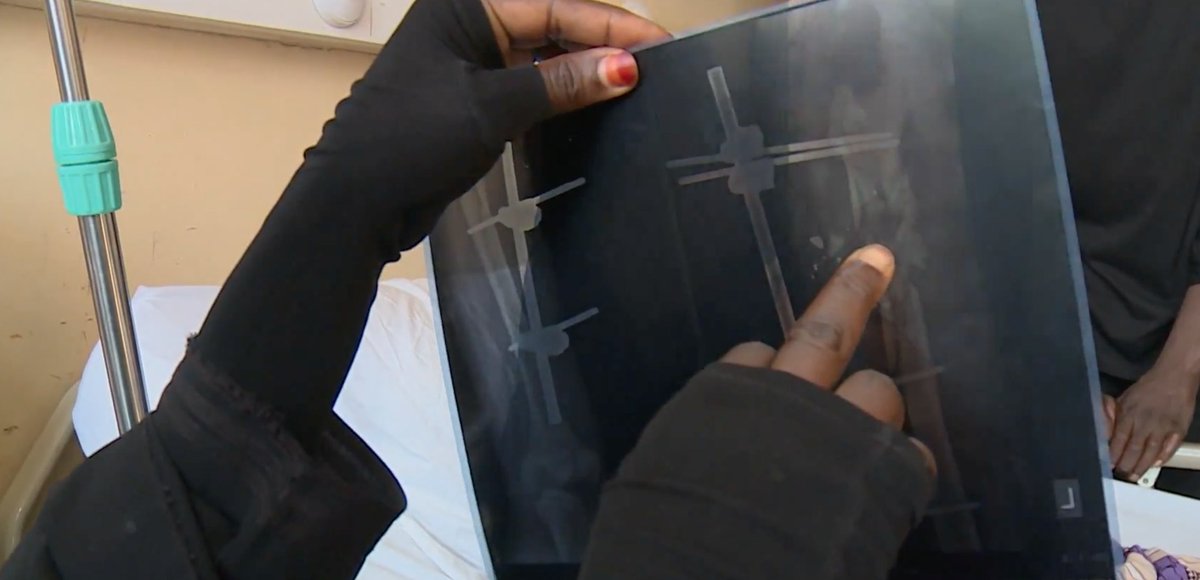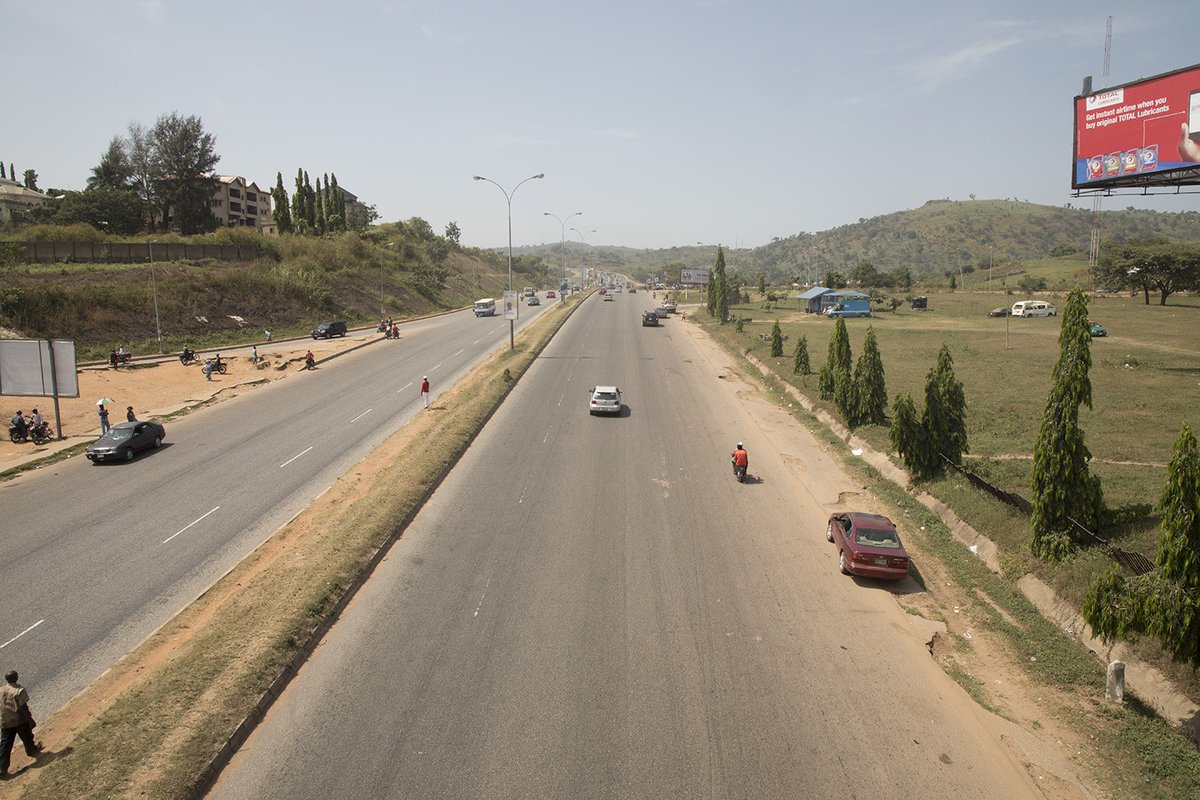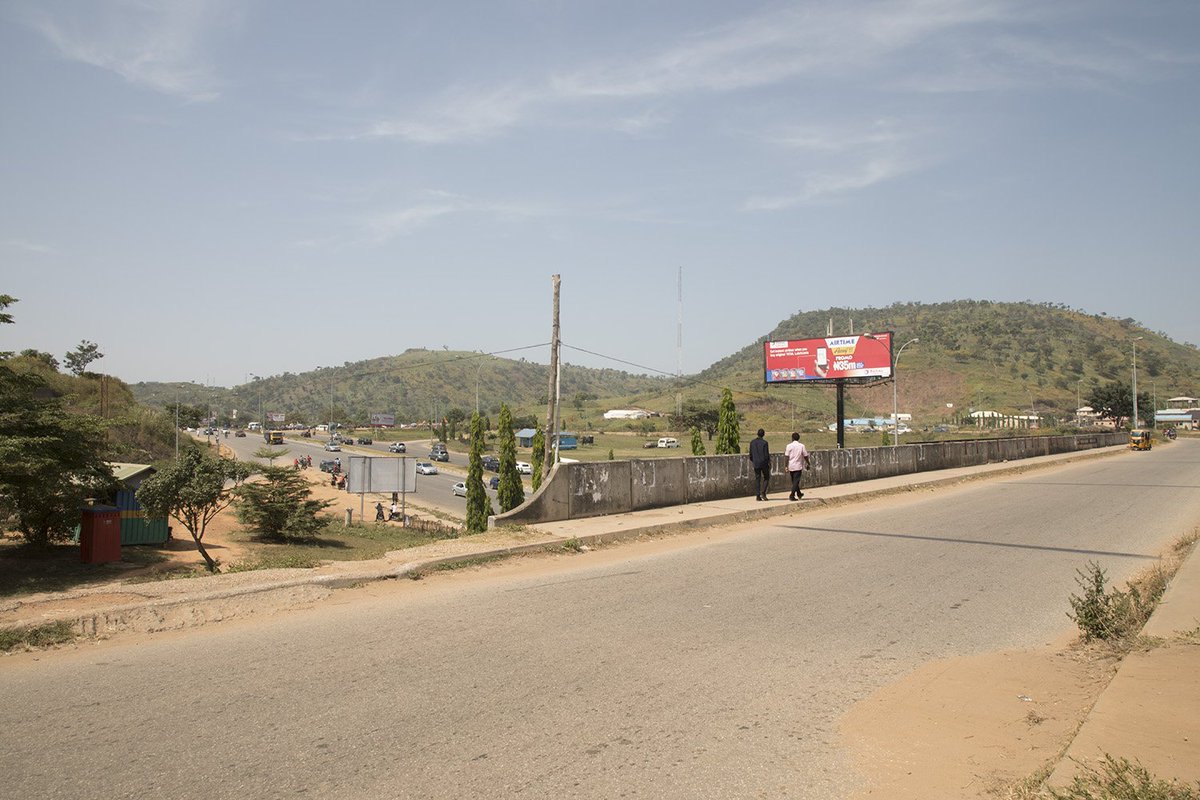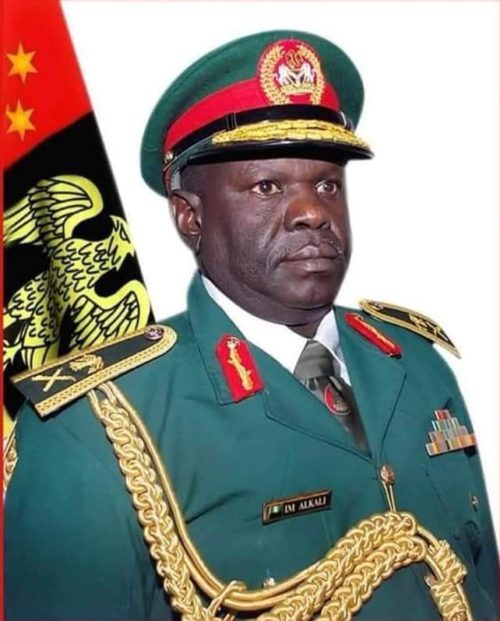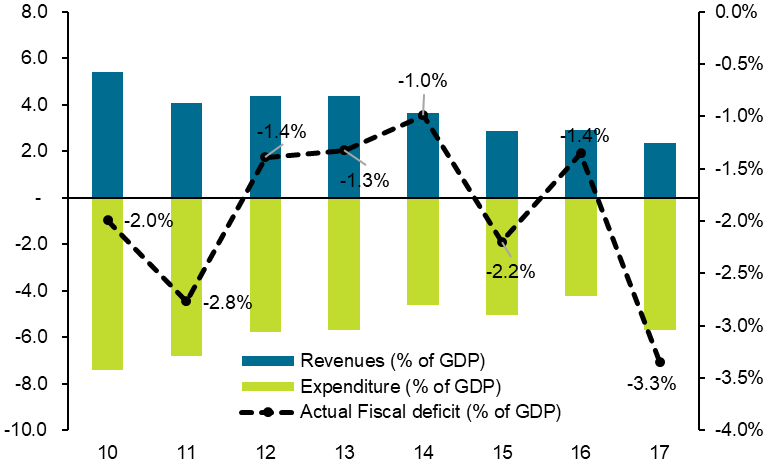THE STORY OF CHIEF MKO ABIOLA AND THE JUNE 12, 1993 ELECTION -- The Death of An Uncrowned Nigeria President
MKO Abiola was a Nigerian Yoruba businessman, publisher, politician and aristocrat of the Yoruba Egba clan.
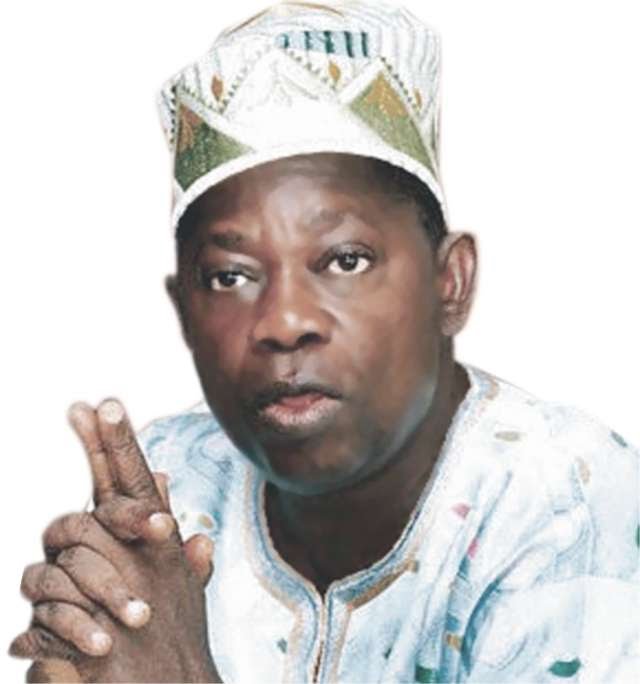
The Babangida government annulled the election on grounds of allegation that it was Corrupt and Unfair.
Moshood Kashimawa Olawale Abiola was born into a poor family in Abeokuta, Ogun State, Nigeria on August 24, 1937.
Moshood Abiola was his father's 23rd child but the first of his father's children to survive infancy, hence the name 'Kashimawo'.
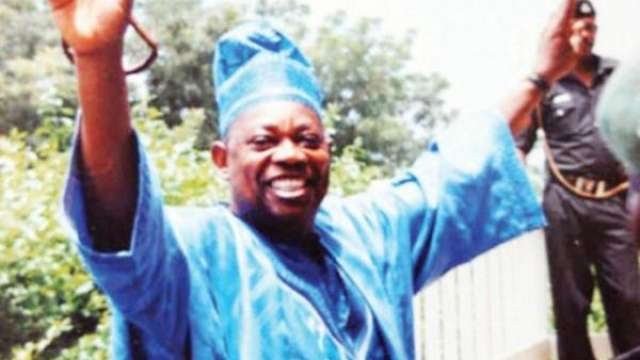
At the age of nine he started his first business selling firewood gathered in the forest at dawn before school, to support his father and siblings.
Abiola was raised in Muslim faith; he was brought up in a Community divided between Christians and Muslims.
Following the common Islamic tradition, Abiola took four wives;
> Simibiat Atinuke Shoaga in 1960,
> Kudirat Olayinki Adeyemi in 1973,
> Adebisi Olawunmi Oshin in 1974, and
> Doyinsola (Doyin) Abiola Aboaba in 1981.
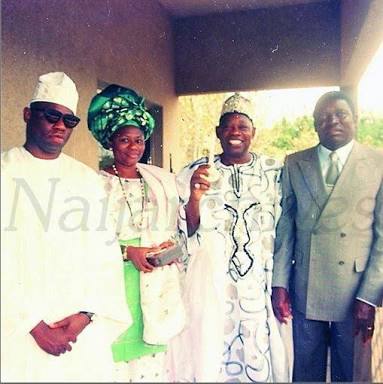
Abiola's second wife, Kudirat, was murdered in the capital city of Lagos in 1996. There was
speculation that her death was caused by the military, but no proof was ever found.
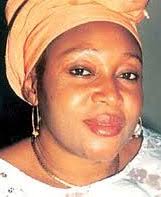
In 1956 Moshood Abiola started his professional life as a bank clerk with Barclays Bank in Ibadan, South-West Nigeria.
After two years he joined the Western Region Finance Corporation as an executive accounts officer,..
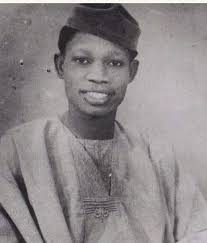
In 1969,Abiola joined the International Telephone and Telegraph (ITT),where he rose to the position of Vice-President,Africa and Middle-East.
During his time at ITT, Abiola was accused of corruption and using substandard materials when he was the chairman and chief executive officer of International Telephone and Telegraph, Nigeria (ITT),..
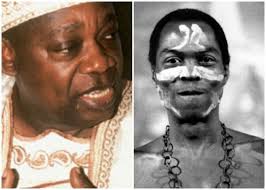
And the late Fela Anikulapo Kutihas a song where he referred to the acronym ITT as “International Thief Thief”.
Moshood Abiola sprang to national and international prominence as a result of his philanthropic activities.
Much of Abiola's fortune, which was estimated at close to $2 billion, he freely distributed to others.
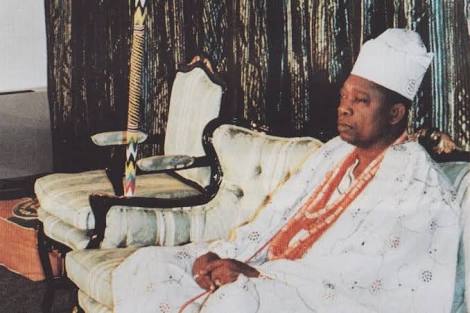
From 1972 until his death Moshood Abiola had been conferred with 197 traditional titles by 68 different communities in Nigeria,...
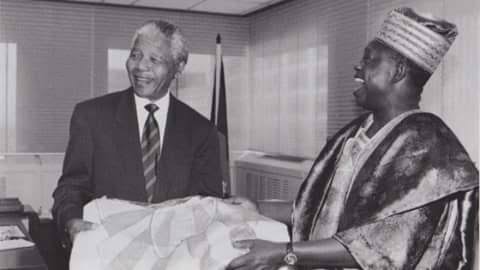
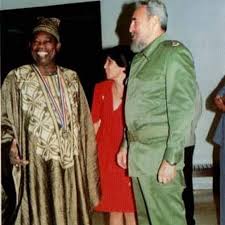
Chief MKO Abiola's generosity earned him the nickname "Father Christmas" among the citizens of Nigeria.
Nigeria, the most populous country on the African continent, obtained its freedom from Britain in 1960. During the four decades that followed, it endured several major political crises, including the collapse of civilian rule in the 1960s ...
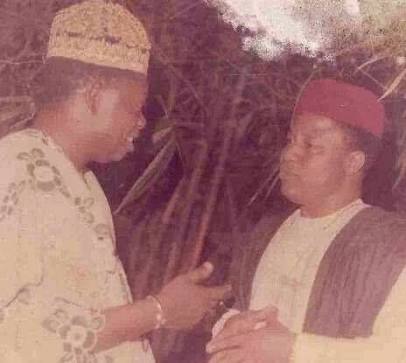
Historically, North-South conflicts have peppered Nigeria,..
Abiola's involvement in politics started early on in life when he joined the National Council of Nigeria and the Cameroons (NCNC) at age 19.
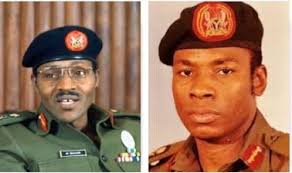
Notably and ironically too, MKO Abiola is also alleged to have sponsored the 1985 coup that brought in his Close friend General Babangida to power with ten million dollars ($10M)
In December 31st 1983, Gen. Mohammadu Buhari terminated the democratically elected government of Alhaji Shehu Shagari,...
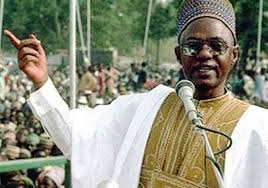
It has since been known that the palace coup was staged by General Ibrahim Babangida,..
Ironically, It was this same MKO Abiola whose Electoral victory was annulled by Ibrahim Babangida, that actually made it possible for the 1985 coup of Babangida to succeed.
Tunde Idiagbon, was first taken care of.
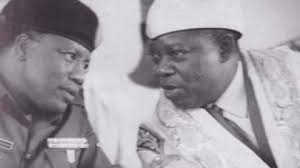
of 1985, had to be delayed for another four months because of the fear of General Idiagbon.
And Babangida, who was to be installed head of state, went to Abiola and the Concord newspaper publisher ..
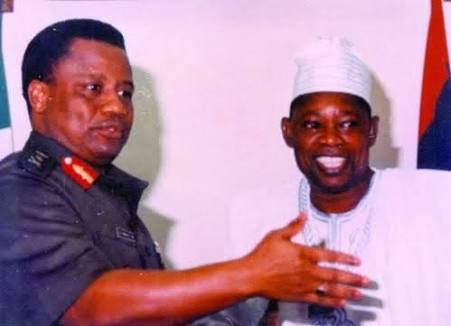
"you can't get this one unless Idiagbon is out of the way."
Chief Abiola's wife Titilayo, who made the revelation went further that, Chief Abiola then told Babangida not to worry:
Chief Abiola told King Fayd, "I want you to invite this our number two
(Tunde Idiagbon) for the Hajj."
went (and) Babangida took over."
She added that when Idiagbon returned to the country from Saudi Arabia
"he knew it was Abiola's doing, and uptil today, they don't talk (to each
other)".
when a certain prominent Moslem sheik died, "my husband was there, Idiagbon was there. He (Idiagbon) greeted everybody, but when it got to my husband's turn,he just ignored him and went to the next person".
ensure that Alhaji Shehu Shagari clinched political power in 1979 and the late Chief Obafemi Awolowo did not obtain it, because of the personal things between Abiola and Awolowo.
"You see,the NPN thing, he (Abiola) even went as far as establishing a newspaper (Concord) in order to counter Awolowo's Tribune then,"she recalled.
might not be far from the truth:
In the Magazine, it was stated:
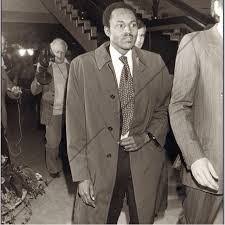
"Idiagbon had traveled out of the country on pilgrimage, Chief MKO Abiola was alleged to be well aware of the plot and ...
It was alleged that MKO Abiola sponsored the 1985 coup that brought Ibrahim Babangida to power with a whopping ten million dollars ($10M).
Note:
in 1985, $10milliin was a huge amount.
After a decade of military rule, General Ibrahim Babangida came under serious pressure to return back democratic rule in Nigeria.
In 1993, the Nigerian government was undergoing another in-a-series of attempts at stabilization.
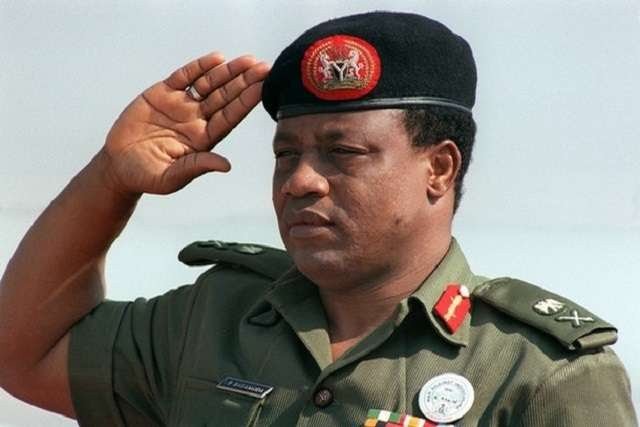
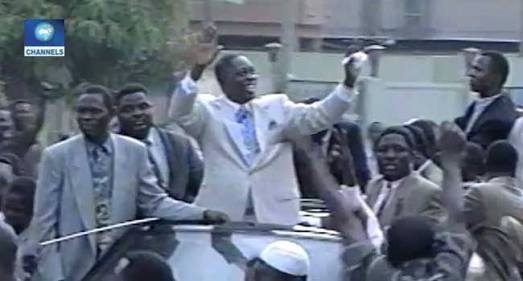
While, The National Republican Convention (NRC) chose Bashir Othma Tofa.
The elections was scheduled for June 12, 1993.
At the End of the Election, the Coated results clearly showed Abiola to be the winner.
Note: This is the Picture of Prof. Humphrey Nwosu.
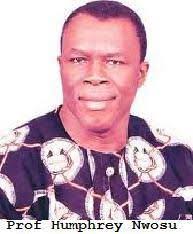
In defiance of the court order,a group called Campaign for Democracy released the election results,
MKO Abiola, believing himself to have been given a mandate from the voters, joined the Campaign for Democracy in ...
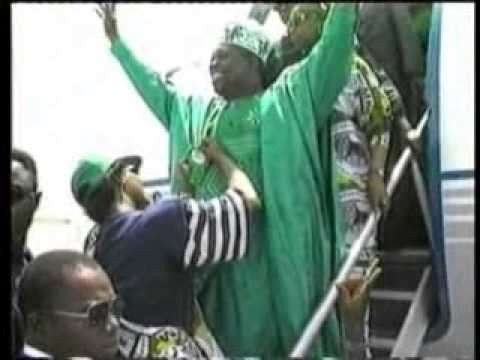
Babangida then stepped down on the day before the new government took effect, handing power over to a preferred loyalist, Chief Shonekan.
That election was considered by many to have been the cleanest in Nigeria's history and was praised as a concerted effort to overcome ethnic and ...
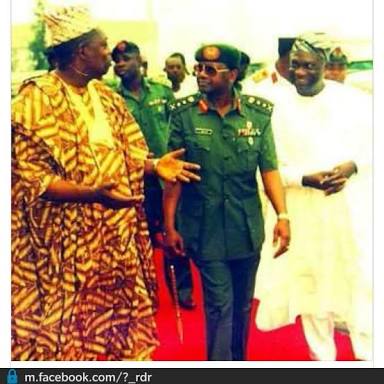
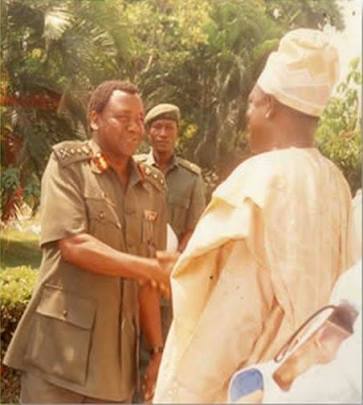
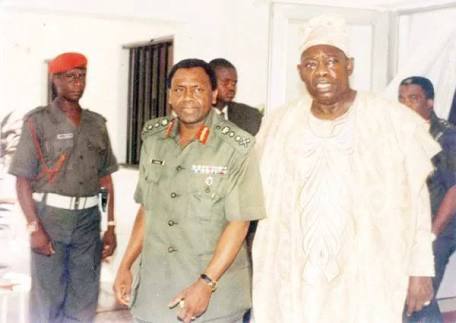
Meanwhile, Babangida set up interim government in 1993,with Chief Ernest Shonekan as it's head. Their mandate was to conduct another election and transition the country to Democracy.
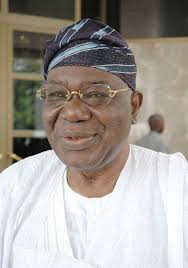
Shonekan might have been the interim president but he was not the Commander in Chief of the Armed Forces an oversight..
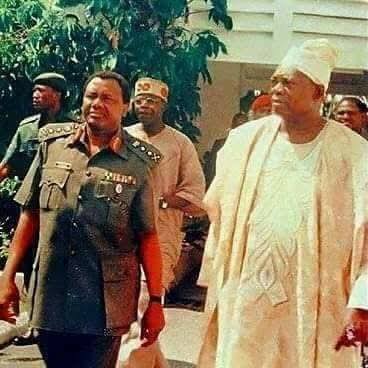
Abacha also had the backing of the northern ruling elite who believed power was their birthright and did not want to see a southerner rule.
Resentment against the military grew during the first part of 1994.
In 1994 Moshood Abiola declared himself the lawful president of Nigeria in the Epetedo area of Lagos island, an area mainly populated by (Yoruba) Lagos Indigenes.
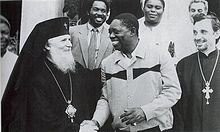
He had finally provided Abacha with a legitimate reason to go after a man whom he deemed to be a threat.
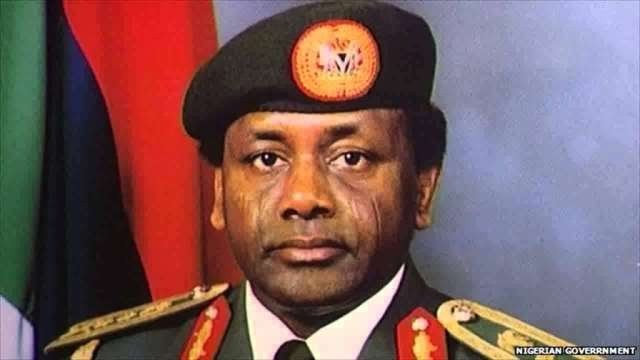
The military, conducting a nationwide hunt, arrested him on June 23 1994.
The following day, 1,000 demonstrators marched on Lagos to demand Abiola's release.
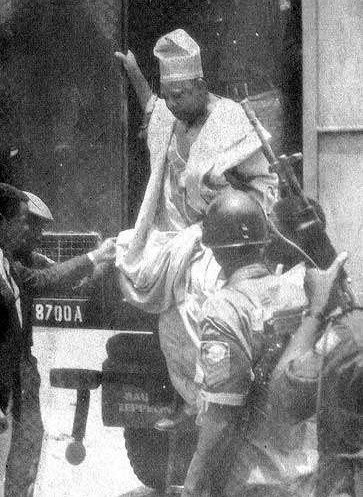
In response,the military charged Abiola with treason.
Prof. Wole Soyinka,one of the driving forces behind Abiola, was forced to flee the country after being charged with treason.
Abacha responded by firing any high ranking military he thought were not loyal, then fired the heads of the state companies and their boards.
Abacha eventually crushed the strike after nine weeks.
This also I includes the Assassination Murder of Mrs Kudirat Abiola, Chief MKO Abiola's Second wife, by General Abacha's Trike-Force Cordinated by Hamza Al-Mustapha.
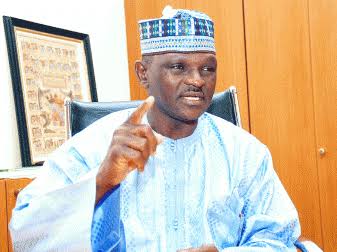
Also of note is the Death of So many Journalist, Lawyers, Activist by Sani Abacha.
While the likes of Ken Sarowiwa were executed by the Abacha Regim.
During that time, Pope John Paul II, Archbishop Desmond Tutu and human rights activists from all over the world lobbied the Government for his release.
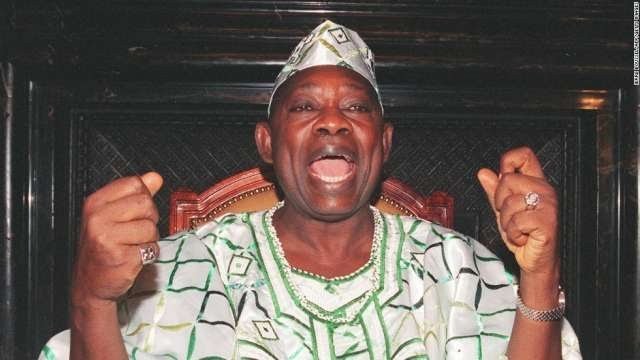
And According to Ayekooto,
The only Politician that made REALISTIC move to cunningly free MKO Abiola was Lamidi Adedibu.
He went secretly to meet Abacha. His meeting with Abacha was top secret.He begged/Prostrated for Abacha to free MKO
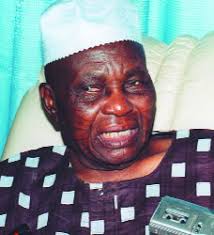
The intention of Adedibu was that he would do anything to free MKO and convince MKO to sign anything to free himself from the dungeon ...
Abiola insisted. Abiola was given that opportunity by the military. Those he contacted asked him NEVER to sign the document Adedibu brought for him! They told him they would get him out without signing any agreement.
Unfortunately, those who asked Abiola not to sign were later found out to have benefited in Abacha Government secretly.
After Abacha died on June 8, 1998 after eating an Apple, there were renewed calls for MKO Abiola to be made the president but this was not to be.
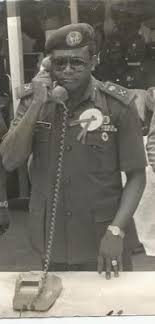
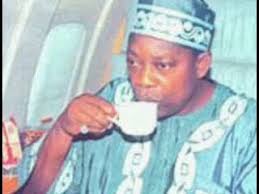
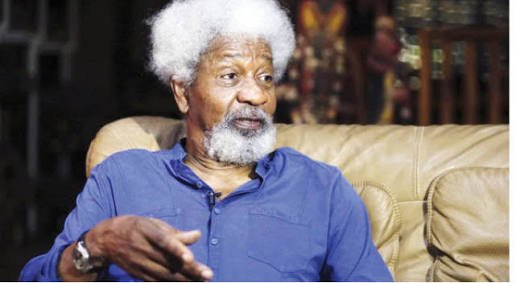
He also indicted some Yoruba leaders on MKO Abiola's death.
The Roman Catholic Archbishop of Lagos, Anthony Okogie, commented on Abiola's passing by saying,..
After his Demise in 1998, Chief MkO Abiola was said that have had 26 wives and concubines,and supposedly 113 children.
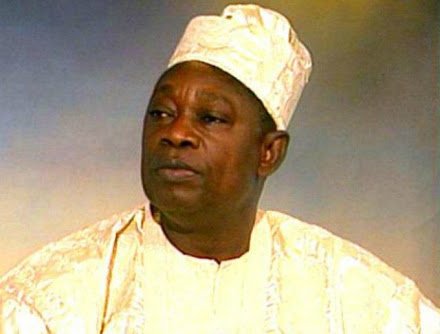
Over seventy people were able to show that Abiola was their father using DNA tests.
Abiola might be dead but his legacy lives on and June 12 will always be honored as the day one man was able to unite a Nation of fractured tribes to accomplish one goal,which was make Nigeria a better place for everyone.
President Muhammadu Buhari also Apologized to the Abiola Family.
"Chief MKO Abiola might have his shortcomings, but then many great leaders have been known to have their bad sides and weaknesses including greats like Martin Luther King and Nelson Mandela,...
Chief MKO Abiola is definitely Nigeria's Hero of Democracy.
The End.
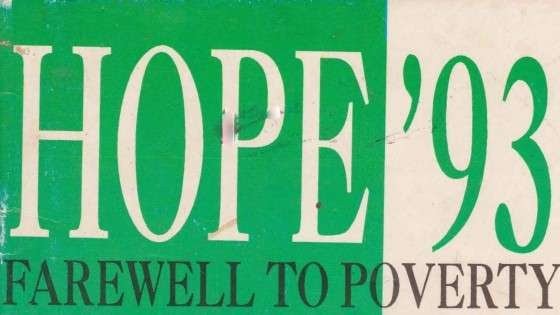
NGU Library Collection, Express Article, Olalekan Olonilua of Encomium Magazine, 1996-2018 LoveToKnow, Ben Bassey, Moshood Fayewimo, editor of the defunct Razor magazine,Ayekooto
#Nzekwe Gerald Uchenna (NGU)
#MovementForTheEmancipationOfNigerianYouths(MENY




